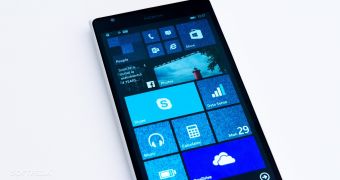Even though it was initially believed that the Microsoft versus Samsung Android patent royalties lawsuit was quickly heading towards a settlement, it appears that this isn't the case, as the South Koreans aren't willing to give up this time and pay the money they owe to the Redmond-based software giant.
Earlier this year, Microsoft filed a lawsuit against Samsung, accusing the company of not paying royalties for some of the Android technologies that it borrowed for its devices. According to Microsoft's own states, the South Koreans must pay $6.9 million (5.5 million euro) in interest as part of a $1 billion (798,000 euro) patent royalty deal.
However, in court papers obtained by Reuters, Samsung says that it delayed the payment because the Nokia acquisition that Microsoft completed this year violates a previous deal between the two companies. Paying the royalties could have caused antitrust problems, it said.
Microsoft announced the takeover of Nokia's Devices and Services unit last year in September, but the acquisition was officially completed this year. Redmond says that, since September, Samsung delayed Android payments on purpose.
The takeover violates a previous Windows Phone deal
Court filings reveal that Samsung and Microsoft signed a deal in 2011 that allowed the South Korean company to use Android technologies on its phones and pay the software giant an unspecified amount of money in return.
At the same time, as part of the deal, Samsung agreed to start developing Windows Phone handsets and even share what Reuters calls “confidential business information” with Microsoft. As a result of this collaboration in the Windows Phone industry, “Microsoft would reduce the royalty payments if Samsung met certain sales goals for Windows devices,” the source notes, citing court documents.
Everything changed when Microsoft decided to purchase Nokia, Samsung told the court, because by making its own phones, the two companies started competing in the same business. This violated the initial deal signed in 2011, Samsung said.
Samsung: Microsoft is now a hardware competitor
Samsung is now going through pretty much the same problems that other companies, including ASUS and Acer, experienced in 2012 when Microsoft decided to launch its own tablet.
The software giant becomes a rival for its own partners by focusing more on hardware devices, so it's easy to see how Samsung actually refused to continue the collaboration.
“[T]he agreements, now between competitors, invite charges of collusion,” the South Korean company explained.
Microsoft, on the other hand, continues to be very sure that it will win the lawsuit, and despite any possible collaboration in the phone industry between the two companies, the case goes on with no settlement.

 14 DAY TRIAL //
14 DAY TRIAL //